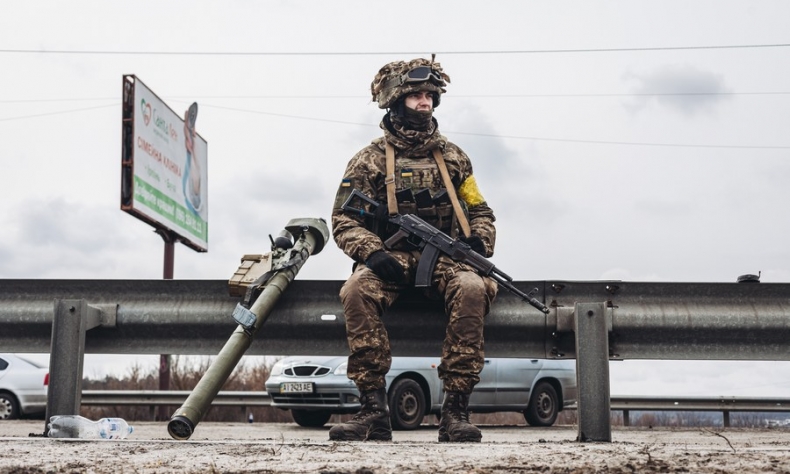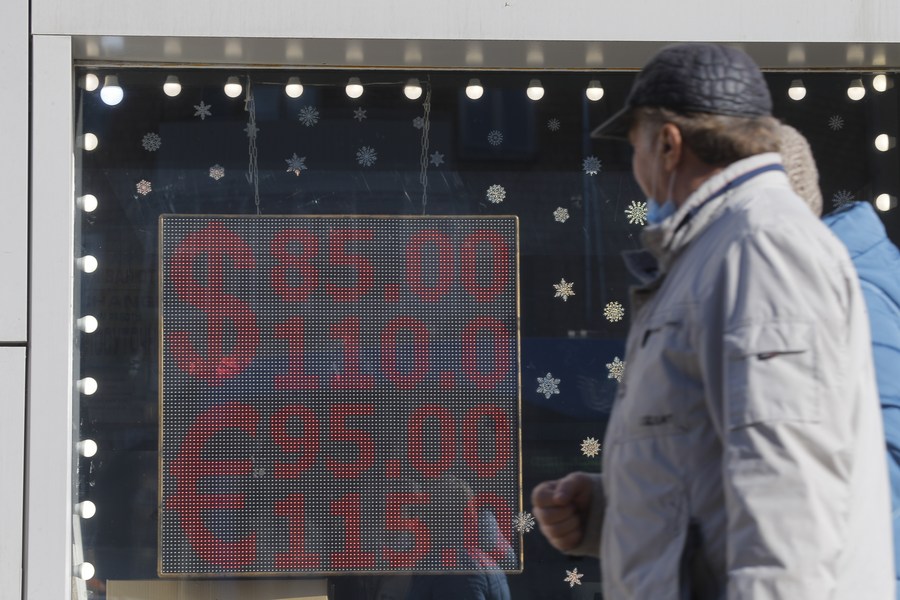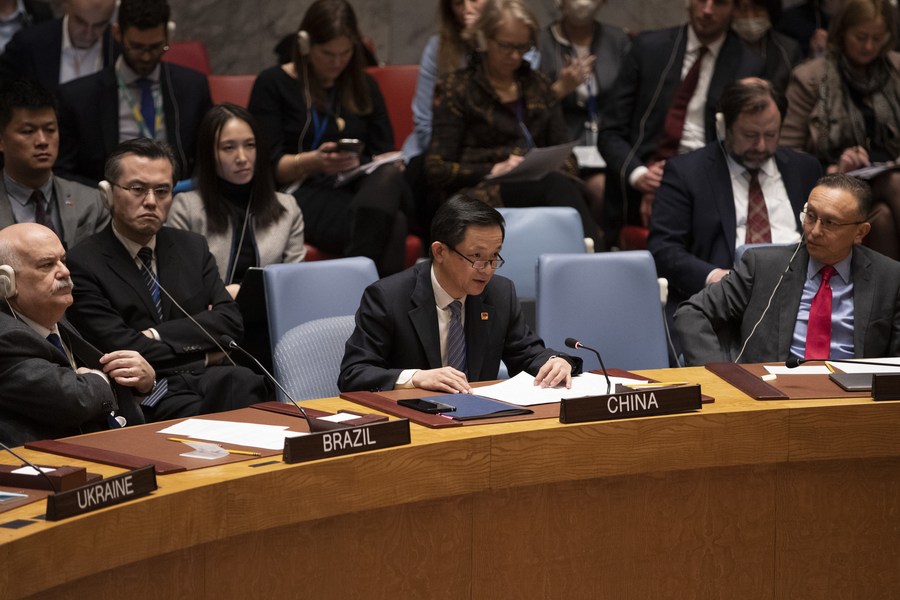Common Security Must Replace Antagonism

The vision of common, cooperative, comprehensive and sustainable security should be advocated. A balanced, effective and lasting global and regional security structure requires a global partnership.
One year after Russia launched its special military operation in Ukraine, it remains difficult to predict the final outcome of the armed conflict. A protracted war looks probable, if not inevitable.
It has become an established fact, however, that the post-World War II (WWII) international system is under the heaviest pressure since the end of the Cold War in the early 1990s. A new arms race has emerged in many parts of the world, triggered largely by the Ukraine crisis. Trust between major countries is waning, multilateralism is under attack, and unilateralism is rampant. The once-in-a-century pandemic, the Ukraine crisis, the unparalleled sanctions on Russia, the spiraling inflation and a looming recession all overlap one another and have sounded the alarm in the boiler room of the international system.
Lingering ramifications
The geopolitical plates on the western side of Eurasia are undergoing a profound shift. Europe is now mired in animosity and antagonism against Russia. Russia’s relationship with the entire Western world has completely broken down; the country is heading inevitably to the East and South. Ukraine’s overall leaning to the West is a fait accompli. European strategic autonomy is dwindling. NATO, once described by French President Emmanuel Macron as “brain dead,” is back to life and is taking in new members. The U.S. has strengthened its dominance in Europe by reviving NATO and other institutions.
President Joe Biden had hoped to put America’s Russia policy on a “stable and predictable” footing in order to focus on its Indo-Pacific strategy. However, the war in Ukraine is distracting Washington’s attention and draining U.S. resources.

The crisis and the harsh Western sanctions against Russia have quickly pushed up already high energy prices, which has led to disruptions in global supply chains and exacerbated persistently high inflation in the U.S. and Europe. The U.S. and other Western countries drew values-based lines in an attempt to construct a politically dominated and segmented globalization to serve geopolitical purposes.
The more profound and serious effect on globalization comes from the political and strategic side. Changes in the geopolitical and strategic landscape of the world that will follow the crisis, as well as deglobalization efforts of different camps, will impede value chains in Europe and Asia. Global trade and investment will also suffer from the threat of separation into multiple camps.
Ordinary people are the ones who bear the brunt of the war. The direct victims of the conflict are the millions of Ukrainians who have been forced to flee their homes, resulting in one of the biggest refugee crises Europe has seen since the end of WWII, which will have long-lasting economic and social impacts on the host countries.
The crisis has had a dramatic and far-reaching influence on the global economy, particularly on trade and investment, which are still struggling to recover from the COVID-19 pandemic, and particularly for the European allies of the U.S. These nations are paying a tangible price for the war. The Ukraine crisis is at their doorsteps, with inflows of refugees and energy shortages. The Ukraine crisis has also caused the euro to depreciate and it tumbled to a 20-year low against the U.S. dollar in July 2022.
In parallel, the Ukraine crisis has driven up the costs of food, fuel and fertilizers in many countries, and has also exacerbated the global food crisis. The World Food Program of the UN estimates that 345 million people in 82 countries are facing, or are at risk of, acute food insecurity today, compared with 135 million in 53 countries before the pandemic.
Both sides have accused the other of shelling the Russian-occupied Zaporizhzhia nuclear power plant, raising fears of a nuclear disaster. As UN Secretary General António Guterres warned, “the risk of nuclear confrontation is back—something that we have forgotten for decades.”

Calls for peace
On the Ukraine issue, China’s position boils down to supporting talks for peace. China stays firm on the side of peace and dialogue.
Chinese President Xi Jinping spoke to Russian President Vladimir Putin on February 25, 2022, the second day of the conflict and expressed China’s desire to see Russia and Ukraine hold peace talks as early as possible. After that, President Xi held video and phone conversations with leaders of the U.S., France, Germany and Britain, underscoring the need to support dialogue between Russia and Ukraine.
Yang Jiechi, then Director of the Office of the Foreign Affairs Commission of the Communist Party of China Central Committee, met with U.S. National Security Advisor Jake Sullivan in Rome in March 2022. State Councilor Wang Yi has maintained close communication with U.S. Secretary of State Antony Blinken and foreign ministers of other countries, exchanging views on the Ukraine crisis.
In March, 2022, China outlined a six-point initiative for preventing humanitarian crisis in Ukraine, which calls for making sure that humanitarian operations abide by the principles of neutrality and impartiality; giving full attention to the displaced persons in and from Ukraine; ensuring the protection of civilians; providing for safe and smooth humanitarian aid activities; providing for the safety of foreign nationals in Ukraine; and supporting the UN’s coordinating role in channeling humanitarian aid, as well as the work of the UN crisis coordinator for Ukraine. On February 24, it released a document detailing its position on the political settlement of the Ukraine crisis (see box).
China has also walked the talk, sending aid to Ukraine. It is not a party directly involved, but it has chosen neither to stand idly by nor add fuel to the fire, still less exploit the crisis. It has not provided military assistance to Russia. Instead it has delivered much-needed humanitarian supplies to Ukraine such as food, baby formula, sleeping bags, quilts and damp-proof mats. In contrast, 95 percent of what the U.S. offers to Ukraine are lethal weapons.

As a responsible major country and a permanent member state of the UN Security Council, China has made its observations on the merits of the matter and remained independent, objective and impartial.
There have been claims that China had prior knowledge of Russia’s military action and demanded Russia delay it until the Beijing 2022 Olympic Winter Games had concluded. Rumors further claimed that Russia was seeking military assistance from China. Assertions that China knew about, acquiesced to or tacitly supported this war are purely disinformation. All these misleading claims serve only the purpose of shifting blame to and slinging mud at China.
When the armed conflict began, there were more than 6,000 Chinese citizens in Ukraine. China is the biggest trading partner of both Russia and Ukraine, and the largest importer of crude oil and natural gas in the world. Conflict between Russia and Ukraine does no good for China. Had China known about the imminent crisis, it would have tried its best to prevent it.
There are also voices from the West that have tried to distort China’s stance on the crisis, and link China’s Taiwan region and Ukraine to play up the risks of a conflict in the Taiwan Straits. These are totally different issues. Ukraine is a sovereign state, while Taiwan is an inseparable part of China’s territory. The Taiwan question is China’s internal affair. It does not make sense for people to underline the sovereignty of Ukraine while undermining China’s sovereignty and territorial integrity regarding Taiwan. The future of Taiwan lies in the peaceful development of cross-Straits relations and the reunification of China. China is committed to peaceful reunification, but also retains all options to curb “Taiwan independence.” China hopes the U.S. earnestly abides by the one-China principle and does not support “Taiwan independence” separatist activities in any form.
The way forward must be built on common security rather than antagonism. The vision of common, cooperative, comprehensive and sustainable security should be advocated. A balanced, effective and lasting global and regional security structure requires a global partnership.
 Facebook
Facebook
 Twitter
Twitter
 Linkedin
Linkedin
 Google +
Google +










